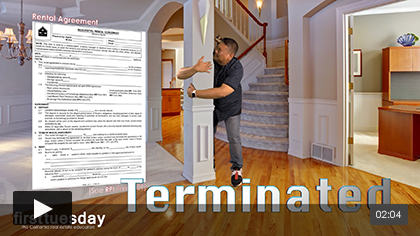Question:
What are the expenses associated with employment as a real estate agent?
Answer:
A prospective real estate agent is first required to obtain a real estate license from the California Bureau of Real Estate (CalBRE). Licensing fees include a:
- $60 state exam application fee;
- $49 Live Scan fingerprint processing fee;
- $20-40 rolling fee paid to the Live Scan provider; and
- $245 licensing fee.
A real estate agent is responsible for the costs of maintaining their license, which includes any amount for continuing education and a license renewal fee of $245. These expenses are incurred every four years just prior to the expiration of the agent’s license period. (When renewing late within the two-year grace period after their license expires, an increased $367 license renewal fee applies).
Once licensed, a real estate agent is required by law to be under contract with a broker and perform all real estate activities on behalf of their broker. On closing a real estate transaction, the agent receives a share of the earned fee paid to their broker, often after first deducting any franchise fee. The broker’s share of the fee covers their transaction costs and general overhead. Additional expenses the broker may charge vary by brokerage and may be in the form of errors and omissions (E&O) insurance premiums, desk fees or office rent, though fee splits are most common (e.g., the agent receives 50% to 70% of the earned fee while the broker keeps 50% to 30%).
Real estate agents are also responsible for administrative and marketing costs to sustain their business. Employed as independent contractors to the broker, most offices have agents pay for their own:
- marketing materials, signs and advertisements, including printing costs;
- business cards;
- letterheads;
- business software, such as a customer relationship management (CRM) program; and
- any other tools needed to run the agent’s business, such as an agent website or online marketing campaign.
Additional operational costs incurred to function as a real estate agent include:
- annual real estate trade union membership fees — only required when the employing broker is a member;
- multiple listing service (MLS) fees to access the local database of listed properties, usually paid quarterly;
- E&O insurance, per transaction or monthly; and
- lock boxes and access keys for properties.
Further, when an agent chooses to work for a franchise, such as Century 21 or Re/Max, their employment often involves franchise fees in the form of an additional fee split and/or monthly or annual fees.
Real estate agents also need to be aware of any miscellaneous costs associated with working as a real estate agent, such as:
- annual taxes, varied based on location and income;
- healthcare expenses;
- gas, transportation and car insurance; and
- any utilities the agent needs to operate their business, such as cell phone and internet service.
Real estate agents are advised to itemize their operating costs to estimate their annual income and expenses. [See RPI Form 504]














